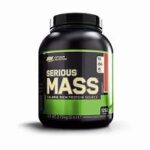After surgery, our bodies need time to heal and regain strength. That’s why following health and fitness tips for after-surgery care is crucial. By implementing these tips, we can promote a speedy recovery, minimize discomfort, and ensure a successful outcome.
From rest and relaxation to eating healthy foods and engaging in gentle exercises, these tips will empower kids to actively participate in their own healing process.
So let’s dive into the world of after-surgery care and learn how to support our bodies on the path to recovery! Here are some health and fitness tips:
1- Keep a watch out for potential infections.
Because the skin is broken, there is a high risk of infection regardless of the procedure employed to seal the incision. Keep the wound dry, change the dressing as instructed by your doctor, and learn how to spot when a wound is not healing properly to avoid infections.
You may suffer discomfort, itching, tingling, and numbness around the cut site after surgery. You can also notice some puffiness or drainage.
In contrast, notify your doctor if there is pus, excessive bleeding, fever, persistent or severe pain, increasing swelling, redness, or a change in odour from the incision. These are frequently symptoms of an infection that demands prompt attention.
2- Do not drive again until you have received medical clearance.
Many people believe that the medical order not to drive is exclusively because of the effects of anaesthetic, but this is not the case.
If you have a cut from a recent surgery that needs to heal, moving around will not help. This entails changing gears, pumping the accelerator, and so on. All of these movements, as well as any sutures, surgical staples, tape, or surgical glue used to close the incisions, have the potential to rupture the wound. So, refrain from driving while recovering! Only when prescribed by a physician.
3- Follow medicine instructions exactly.
Medication is one of the most important health and fitness tips. Some people avoid drugs because they underestimate the pain of a cut or believe they are strong enough to handle it on their own.
This is a significant mistake because being in pain can actually slow down healing from a wound.
4- Do not lift more weight than your doctor has prescribed.
As previously said, each form of surgery necessitates a distinct type of treatment and care. While some may be permitted to lift some weight, others are completely restricted. As a result, we cannot provide definitive advice on this.
With that in mind, say you’ve had a reasonably basic surgery and the medical advice was not to move anything weighing more than five kilograms for at least a week. Three days later, you are pain-free and confident enough to lift ten kilogrammes. Did you recuperate faster than predicted, and are you capable of doing so?
The answer will most likely not surprise you. You can’t do it. Excessive effort of any kind (even working out at the gym) can not only open the sores but also render the affected regions more susceptible to infection.
5- Rest only when absolutely essential.
Rest is an essential health and fitness tip. Regardless, lingering in bed when it’s time to get up is a graver error than you might imagine. Consider moving upon receiving a medical recommendation.
Most of the time, movement aids in overcoming fatigue. Because your bowels can become lethargic after surgery and a little physical activity can help wake them up, moving around also aids digestion.
6- Never discontinue antibiotics before the course of treatment is complete.
When there is no discomfort and the incision looks to be healing, many people discontinue antibiotic treatment. In fact, if you quit taking them, you may not have any infections.
The issue is that discontinuing this type of therapy too soon increases the chance of developing antibiotic resistance. And this resistance will occur not only for the drug that was discontinued, but for all others in the same class. As a result, never interrupt treatment before the doctor’s deadline.
7- Avoid smoking.
Health and fitness tips ask to avoid smoking because smoking interferes with healing. If you stop smoking during your rehabilitation, your wound will heal faster and with fewer scars.
Smoking limits the quantity of oxygen that reaches a wound and interferes with inflammatory cells that are meant to speed up healing.
Conclusion
Finally, smoking can significantly prolong the healing time of surgical wounds, often by weeks. Furthermore, it heightens the already high risk of postoperative infections and pneumonia.Taking care of your health and fitness after surgery is critical for a good recovery.
Keep in mind that everyone’s rehabilitation process is unique, that’s why health and fitness tips are also different for people; therefore, it is essential to adhere to your doctor’s recommendations and seek their counsel whenever necessary. Taking care of your body after surgery not only expedites your recovery, but also reduces your risk of complications and enhances your overall health.











